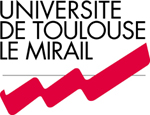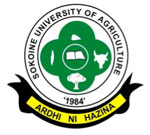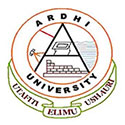RurbanAfrica research narratives
The goal of the Rurban Africa project is ambitious: from its inception, we investigated and documented the profound and extremely dynamic transformations that affect rural and urban areas, agricultural production systems and livelihoods, migration and mobility and the growth of urban centres. In many cases, these processes are not reflected in existing, reliable data such as censuses and surveys. In many cases, there is also a deep separation between all that is deemed to be ‘urban’ and all that is assumed to be ‘rural’. This is often at the roots of inadequate policy responses that may increase inequality rather than support sustainable development. In Policy Brief 1 and Policy Brief 2 we summarised the preliminary research findings and the discussions held in the first round of country policy dialogues. Policy Brief 3 explored the centrality of getting rural-urban transformations right for the success of the new global agendas, from the SDGs to the New Urban Agenda.
In this set of short interviews, we asked several researchers involved in fieldwork to tell us what they felt was their most significant ‘finding’ – something that changed the way they understand and appreciate the transformations they have been witnessing and documenting during the course of the project. Their answers show the huge diversity of these dynamics. But while most researchers’ work has focused mainly on one country, and in some cases on one dimension – agricultural production, rural livelihoods, mobility, urban livelihoods – there is a surprisingly strong underlying narrative that ties all countries and locations together, as pointed out by the interviewees who have been working on rural-urban linkages for many decades.
We hope you enjoy the interviews. Your feedback will be very helpful too.
Overview of RurbanAfrica project's focus
on rural livelihoods
Paul van Lindert, Utrecht University (Netherlands), gives an overview of the Rurban Africa project highlighting its focus on the transformation of rural livelihoods in the context of globalisation and the withdrawal of the state in Sub-Saharan Africa.
Longitudinal transformations
Jonathan Baker, University of Agder (Norway), was among the first researchers engaging with the topic of rural-urban linkages and interactions. Drawing on over 40 years of work, he discusses the main transformations that have taken place and what we should keep an eye on in the future.
Narrative from Rwanda
Ine Cottyn, Utrecht University (Netherlands), shares snippets from her field work experience in Rwanda, and an historical perspective on land reform in the North of the country.
Narratives from Cameroon
Martin Kuete, University of Dschang (Cameroon), describes how the three pillars of Western Cameroon’s economy - trade, agriculture and transport – are changing.
Gery Nijenhuis, Utrecht University (Netherlands), sheds light on migrant investments in their home communities, which are often outside the control of local and national authorities, raising issues of governance.
Chretien Ngouanet, University of Dschang (Cameroon), discusses the persistence and dynamism of communities in overcoming physical and structural obstacles to making a decent living in the cities. '
Narratives from Tanzania
Evelyne Lazaro, Sokoine University of Agriculture (Tanzania), discusses the impact of district council policies on export crop production and marketing—in this case, sesame.
Torben Birch-Thomsen, University of Copenhagen (Denmark), tells us the story of the transformation of a villages into a small town, and the changes in economic activities and access to markets in this process, drawing from his fieldwork in Tanzania.
Narratives from Ghana
Ebenezer Forkuo Amankwaa, University of Ghana, describes some of the challenges faced by low-income settlers in Accra to access basic services (water, sanitation, transport, etc.).
George Owusu, University of Ghana, discusses the positive and negative aspects of the resurgence of urban residents’ investments in the acquisition of land in Ghana’s rural areas.
Romy Santpoort, Utrecht University (Netherlands), describes how in Ghana local cultural traditions still affect lives and economic relations in some rural areas, and provide important explanations on how weekly markets are organised.
James Esson, Loughborough University (United Kingdom), shares findings from his field research underscoring the changes in Ghanaian young urban dwellers’ attitude towards rural areas.











